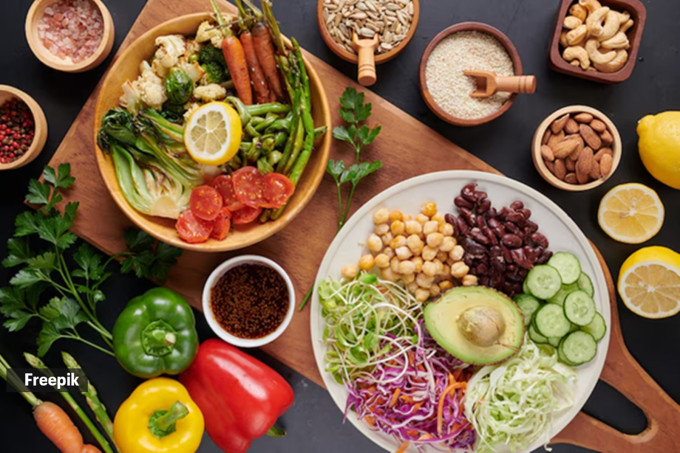Watch out, these foods might be contributing to your oily skin
You are what you eat, they say, and the food we consume has a direct impact on the health of our skin. According to digital creator and clinical dietitian Dr Jushya Bhatia Sarin, there are certain food items that increase the amount of oil in our skin. Some of the common culprits she listed out, include foods like salt, red meats, refined carbs, and sugar.
How exactly do they impact our skin health? Indianexpress.com spoke to Harleen Gill, a clinical nutritionist at Zyla Healthcare in Gurgaon, to understand the nuances.

Salt
“Consuming too much salt can reduce the amount of water that your internal organs can retain. As a result, your body may draw water from your cells and skin, leading to dehydration. This could result in dry, flaky skin, more noticeable lines and wrinkles, and a dull appearance,” said Gill.
According to her, dry skin can lead to the overproduction of sebum, which is the skin’s way of protecting itself from excessive water loss. “This can make your skin appear shiny and greasy, and the excess oil can clog your pores and cause breakouts. If you notice puffiness under your eyes, it’s worth examining your diet,” she advised.
Red Meat
Gill shared that excessive meat consumption point to hormones that can cause issues like acne or worsen conditions such as eczema or psoriasis. Processed meats are smoked, cured, salted, preserved, or altered to stay edible longer or be eaten in a new form.
“Along with additives, they can dehydrate the body and weaken collagen, damaging skin. High sugar content in processed meats can raise blood glucose levels, resulting in excess sebum production,” she added.
Refined Carbs and Sugar
“Refined carbs, which refer to processed sugar and flour, break down into sugar. They feed the bad bacteria in your gut, which can lead to breakouts since acne is a bacterial condition,” explained Gill.
Refined carbs increase oil production in your skin and can clog your pores, she added, since processed sugars can accelerate the aging of your skin.
 Gill suggested choosing lean, high-quality cuts and consider grass-fed, organic options for better nutrient content and lower exposure to harmful substances (Source: Freepik)
Gill suggested choosing lean, high-quality cuts and consider grass-fed, organic options for better nutrient content and lower exposure to harmful substances (Source: Freepik)
What are some alternatives they can be replaced with?
Fruits and Vegetables – The antioxidants in fruits and vegetables can help combat signs of aging, such as wrinkles. Moreover, many fruits and vegetables consist of at least 75 percent water, making them an excellent source of hydration for a healthy skincare routine.
Fish– Fatty fish such as salmon are rich in omega-3 fatty acids, which help reduce inflammation that leads to redness and acne, as well as regulate sebum production.
Zinc – Your skin contains approximately six percent of all the zinc in your body. Zinc is crucial for protecting cell membranes and maintaining the collagen that keeps the skin firm.
Vitamin-C– Foods high in vitamin C are good for your skin as it helps with collagen production and protects cells from damage. Examples include guava, bell peppers, oranges, grapefruit, strawberries, pineapple, broccoli, kale, Brussels sprouts, lemons, cantaloupe, cauliflower, raspberries, and blackberries.
Polyphenols – Another great option for staying hydrated is tea containing polyphenols, which have antioxidant properties. Green tea extracts, in particular, have been shown to protect skin cells against damage and also control sebum production.
How often can you include these foods?
Gill suggested choosing lean, high-quality cuts and consider grass-fed, organic options for better nutrient content and lower exposure to harmful substances. Limit consumption to once or twice a month, she added.
According to her, it’s okay to indulge in salty snacks occasionally, but remember to drink plenty of water. “Consider cutting back on refined carbohydrates and switching to healthier unrefined carbs like vegetables, whole grains, and fruits,” she said.
DISCLAIMER: This article is based on information from the public domain and/or the experts we spoke to. Always consult your health practitioner before starting any routine.
📣 For more lifestyle news, click here to join our WhatsApp Channel and also follow us on Instagram
Disclaimer: The copyright of this article belongs to the original author. Reposting this article is solely for the purpose of information dissemination and does not constitute any investment advice. If there is any infringement, please contact us immediately. We will make corrections or deletions as necessary. Thank you.
